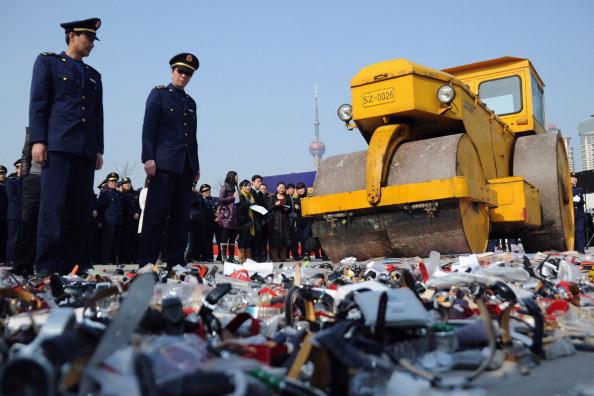News Analysis
China boasts the second largest economy in the world, with its manufacturing industry ranked at number one. Among the top 500 corporations on the planet, 73 are Chinese corporations, three of which are even ranked in the top ten. Despite all that, it is failing to establish any respected, and therefore more valuable, brands.
It is said that brand recognition strength is a manifestation of a country’s economic strength.
It was revealed by China’s General Administration of Quality Supervision, Inspection, and Quarantine that 90 percent of China’s export products are OEM (original equipment manufactured). Even so, not one of the “made in China” brands is listed in top 100 world brand list.
Zhang Dongli, consulting expert in brand management from Shanghai admits that China’s international branding process is slow. He points out that due to instability in China’s political environment, many people do short term business deals for quick profits, without any long-term investment plans.
“Brand construction is a long term investment; it takes time to reap the rewards. Brands are intangible assets—it’s not like an ordinary manufacturing business which generates profits as long as there is equipment, order, and production. It is unknown if investment in brands will be profitable.”
As a result, “’made in China' products have the reputation of being low quality and low-priced, forming a barrier for Chinese brands to gain international recognition,” said Professor Xie Tian from the University of South Carolina Aiken School of Business.
“We have a principle in marketing called ‘effect of origin.’ For example, people generally consider that the quality of Japanese products is very good,” said Xie. “Products made in China are usually not good quality, so even good quality products made in China are affected.”
Another factor is that counterfeit products are rife in China, adversely affecting the world-view of Chinese brands. It has even become a status symbol in China to own fake brand goods. A report published in April by the United Nations indicated that two thirds of all fake products on the planet can be traced back to China.
Statistics from U.S. Customs show that in 2012, fraudulent and pirated goods from mainland China had a value of more than US$900 million, accounting for 72 percent of the total amount seized in the United States.
On the other hand, even in the eyes of Chinese consumers their products are also not as good as foreign brands. Chinese tourists are recorded spending four times what consumers of other countries spend overseas.
Professor Xie emphasized that to be included in the top 100 brands in the world, China must protect intellectual property rights and intensify efforts to combat counterfeit brands. China is still a long way away from gaining international brand recognition.
Copyright © 1998-2013, RFA. Used with the permission of Radio Free Asia
Translated by Jenny Yang. Written in English by Christine Ford.
Read the original Chinese article.


